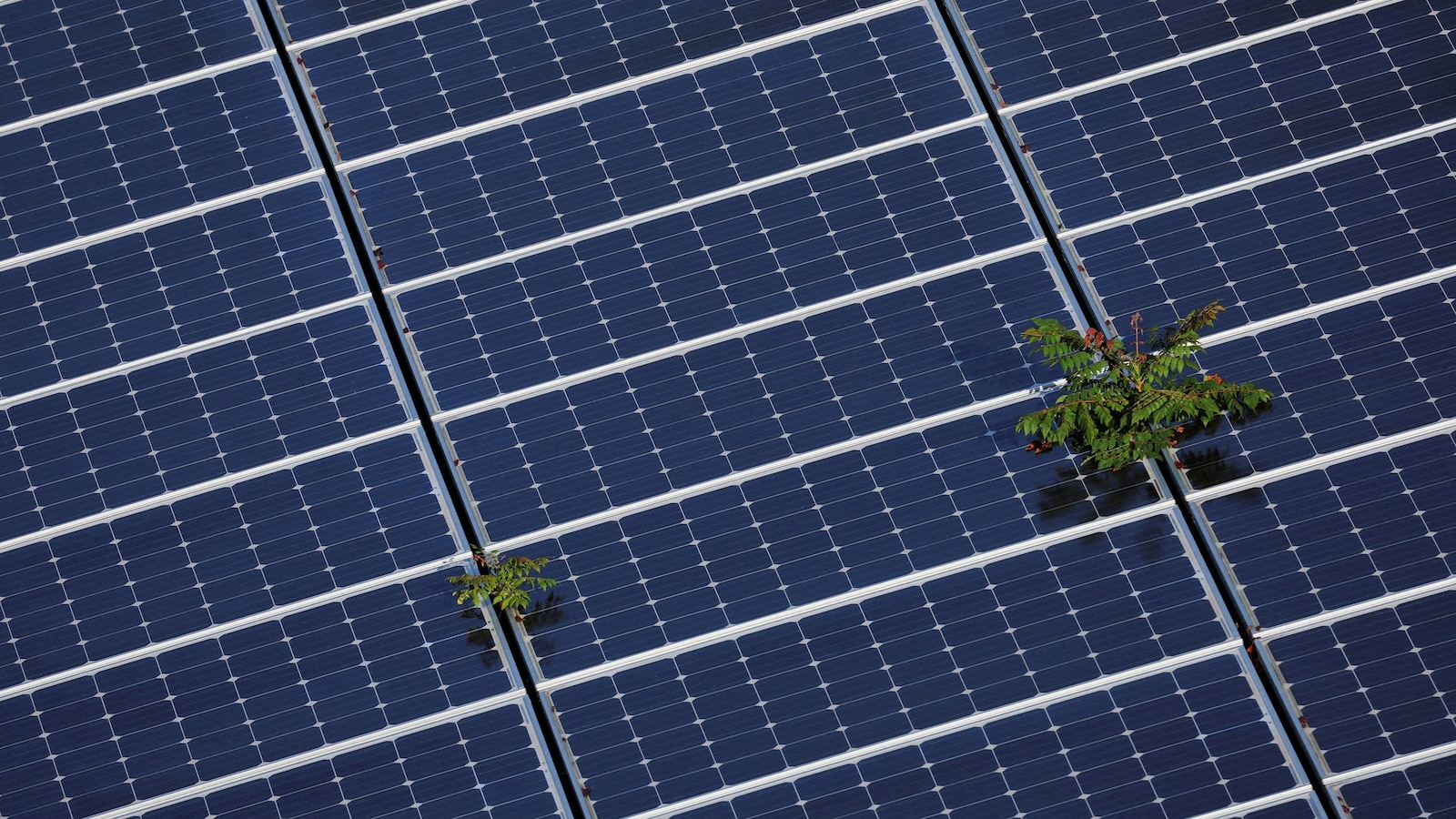The multitrillion-dollar GOP tax bill could have detrimental impacts on decarbonization efforts in the U.S., according to energy experts.
On Thursday, the House of Representatives passed a sweeping package of tax cuts, Medicaid reform and immigration spending that advances President Donald Trump’s campaign promises.
The tax cuts would also impact sustainability efforts and domestic climate goals, environmental policy experts told ABC News.
Some of the biggest environmental impacts will come in the form of cuts to clean energy credits, Alys Campaigne, a climate initiative leader for the Southern Environmental Law Center, told ABC News.

Solar panels are built at the QCells solar energy manufacturing factory in Dalton, Ga., March 2, 2023.
Megan Varner/Reuters, FILE
The bill would repeal or phase out some of the Biden-era clean energy tax credits sooner, Campaigne said.
“What Trump and the Republicans want most is to extend tax cuts that have nothing to do with energy,” Campaigne said. “They are really trying to find ways to pay for their broader tax cuts.”
New energy projects must break ground within 60 days or be “placed in service” by the end of 2028, the bill states.
The legislation also walks back the 2022 Inflation Reduction Act, considered the largest clean energy investment by the federal government.
Credits for rooftop solar installments and electric vehicles would be stripped under the bill as well.
At least four Republican senators have urged continuation of energy tax credits, including support for traditional and renewable energy sources.

An EV Ford Mustang charges Wednesday at an EVgo charger at a station in Portland, Ore., March 20, 2024.
Gregory Rec/Portland Press Herald via Getty Images
Full-scale repeal of current credits “could lead to significant disruptions” in those states, the senators — led by Lisa Murkowski of Alaska — said in a letter on April 9. Billions of dollars in clean energy manufacturing investments from the Biden-era subsidies have benefitted Republican-led states and Congressional districts, Campaigne said.
“It’s a messy political process because of this tension between the different invested interests at play within the Republican caucus,” Campaigne said.
Up to 330,000 jobs could be at risk, and electricity bills for families and businesses could increase by $51 billion, according to the Solar Energy Industries Association.
“This bill threatens the clean energy industry at a time when it’s proving to be not only economically beneficial—lowering costs, creating jobs, and fueling local economies—but also essential to America’s energy future,” Andrew Reagan, president of of Clean Energy for America, said in a statement.
Lori Lodes, executive director of Climate Power, a climate communications firm, told ABC News that House Republicans voted “to create an American energy crisis,” calling it a “reckless betrayal” of the House representatives’ constituents.
“Every single House member who voted to risk jobs in their districts, drive up costs and threaten made-in-America energy will have to answer for that vote back home,” Lodes said.

USDA Forest Service Nez Perce Clearwater National Forest ranger station entry sign, March 26, 2025, in Grangeville, Idaho.
Universal Images Group via Getty Images
Republican-led states and Congressional districts have benefited from billions of dollars in clean energy manufacturing investments spurred by the Biden-era subsidies, Campaigne said.
Environmental policy experts are also concerned about provisions in the bill that would allow polluters to avoid oversight by paying a fee, Campaigne said.
The massive tax bill has now been sent to the Senate, which is likely to significantly revise the bill over the next month.
“This fight isn’t over,” Lodes said. “Senate Republicans have made it clear the House bill is unacceptable.”

Plants grow through an array of solar panels in Fort Lauderdale, Fla., May 6, 2022.
Brian Snyder/Reuters, FILE
In addition, the nonpartisan Congressional Budget Office (CBO) is continuing to review the legislation.
There is still time for many of these provisions to be changed or removed, such as the removal of sections that authorized the sale of hundreds of thousands of acres of public lands in Nevada and Utah.
“Language is still changing,” Campaigne said, adding that much of it is written so broadly that it’s difficult to understand exactly what the impacts will be if the law goes into effect.
On Inauguration Day, Trump declared a “national energy emergency,” claiming that leasing, development, production, transportation, refining and generation capacity of energy in the U.S. is “far too inadequate.”
Since then, Trump has attempted to promote increased production of fossils fuels, including signing an executive order to expand the mining and use of coal. An offshore leasing plan on the U.S. Outer Continental Shelf that would allow for increased drilling was also announced by the Department of the Interior in April.
An Environmental Protection Agency initiative dubbed “Powering the Great American Comeback” includes a pillar to “restore American energy dominance,” which claims will lower energy bills for Americans.
Experts say, however, the U.S. does not have an energy crisis. In 2023, the Biden administration produced 12.9 million barrels per day, breaking the record set in 2019 at 12.3 million barrels, according to data from the U.S. Energy Information Administration. For the last several years, the U.S. has been the largest producer of oil and natural gas in the world.
Trump pushed for swift action on the bill, urging senators to act “as soon as possible” in a post on his social media page following the narrow victory in the House.
“We can celebrate this pass in the House for a couple of hours, but now it’s time for the Senate to get to work,” White House press secretary Karoline Leavitt said during Thursday’s White House press briefing.

